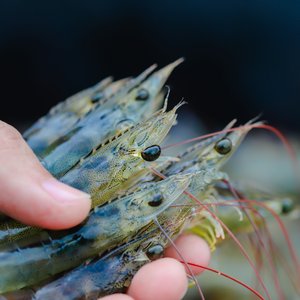A new agreement between the Universities of Stirling and Ningbo, in China, will see aquaculture staff and students share knowledge and collaborate on research and teaching projects.
Stirling’s Institute of Aquaculture and Ningbo’s School of Marine Sciences officially launched the new partnership, after signing a Memorandum of Understanding last year.
The agreement was signed by Professor Herve Migaud, Head of the Breeding and Stock Improvement Research group at the Institute, and Professor Chun-Lin Wang, Dean of the School of Marine Sciences and Head of the Genetic Research group at Ningbo.
“I am delighted by the opportunity to develop a long-term partnership between Stirling and Ningbo on aquaculture research and training,\" stated Professor Migaud. \"This award is a great opportunity to connect, innovate and transform as it aims to develop a deep and mutually-beneficial partnership with Ningbo and its partners in China, the first aquaculture producer in the world, through new innovative teaching courses and research programs in a region of the globe where food security, resilience and sustainability have never been so critical.”
“The establishment of a joint laboratory for aquaculture by the two institutes in China and the United Kingdom will not only promote academic exchanges between the two sides, but also support the sustainable development of the aquaculture industry,” commented Professor Wang.
The research element of the collaboration will initially focus on breeding, genetic improvement, nutrition and health of commercially important aquaculture species in the Zhejiang province including the swimming crab, large yellow croaker, pomfret and cuttlefish.
Staff and student exchange will also play an important role in this collaboration. Dr. Ronghua Li, Associate Professor in Professor Wang’s research group, was awarded a year-long fellowship by the China Scholarship Council to visit Stirling to work in Professor Migaud’s group.










